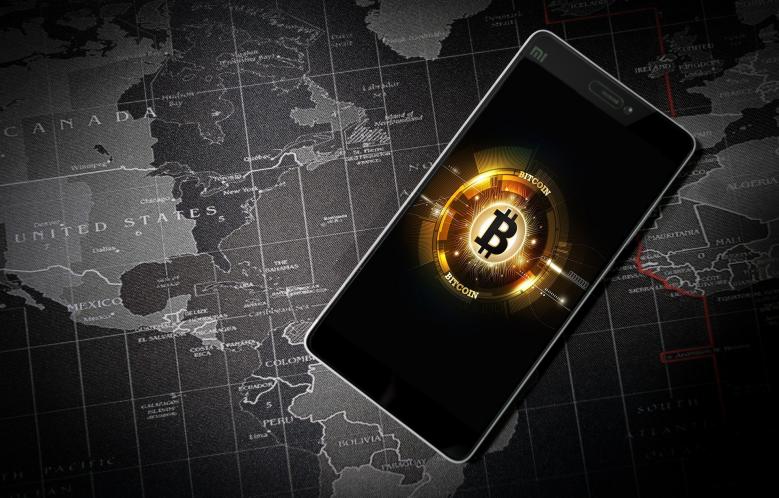Wallets at the Exchange might be Dangerous?
- 2018.10.30
- CryptoCurrency

Rethink about the storage of virtual currency about in Japan.
Two hacking incidents were reported from two major domestic exchanges during this year.
Multiple incidents were also reported in many countries during last year, and the momentum does not seem to be declining.
There are many people who feel resistant towards keeping their own assets in the exchange since wallets stored in exchanges appeared to be a big target of hacking.
It is said that wallets of exchanges were often left open in order to trade immediately without consuming the time of opening it up.
While dealing with virtual currency, wallet's significance is large, and users need to acquire knowledge relating to wallets.
What is a Wallet?
When depositing money in real society, people use bank accounts and wallets.
Although people keep large sum of money in the bank account, and put only a small amount in the wallet, yet when you depositing virtual currency, you manage it with what is called a "Wallet".
Generally, the first wallet to use is the exchange Wallet.
When opening an account and purchasing a virtual currency, a wallet is required to store the purchased virtual currency.
"Wallet" has an "address" corresponding to the account number, and can transfer money by remitting to that address.
A "secret key" is very important while dealing with Wallet, in other words it plays the role of a PIN code.
As it is possible to trade at any time and there is no need to take time to create a wallet, it is often the case that users choose to leave it to the exchange. But as mentioned earlier, the exchange wallets may have a higher possibility of getting hacked.
An exchange is a place where people who want to buy or sell virtual currency gather together to exchange from a legal currency to a virtual currency or exchange between virtual currencies.
For that reason, it is easy for exchanges to become a target of the hackers because assets collected by all the users are kept there and there are places where they manage secret keys online.
For a hacker, the profitability is higher to target exchanges than to target individual wallets, and exchanges that don’t pay much attention on security aspects are just sweet spots to them.
Although new measures against exchanges’ security are being considered, sadly the current situation is still far from “secure” when looking at those successive damages.
In order to protect your assets in this situation, you must bear the responsibility of preservation yourself.
There are several types of wallets, each of which has its own characteristics, so it would be a good idea to use it while examining your own situation.
Security Problems of Exchange Wallets Currently Rises Worries
2017 · Domestic Damage Situation
In March this year (March 2018), the National Police Agency announced the damage reported for the previous year (FY 2017) about the theft tracking statistics from virtual currency accounts.
This report covers fiscal year 2017, 16 virtual currency exchanges and wallets from 3 companies were attacked in the same way, at least 149 outflows are confirmed, and about 662 million yen is illegally remitted.
Last year the number increased more than five times from seven in April to forty-one in June within only 2 months as the proportional of its price increased.
Damages Doesn’t Slow Down in 2018
Even in this year, number of hacking damages has not decreased and hacking has occurred.
In January, domestic major exchange exchanges suffered with hacking damage, and at that time NEM equivalent to approximately 58 billion yen was leaked illegally.
In the following month, 1,700 NNAOs appeared in Italian virtual currency exchange bit-grail. (Worth approximately 204 billion yen at the time)
Also in the same month, a woman living in Fukushima submitted a notification to Fukushima prefectural police that about 25 million yen was illegally remitted.
From this time onwards, although we place importance on each exchange security measure, on September 14, virtual currencies, bit coin, Monacoin, Bit Coin Cache, of an amount equivalent to approximately 67 billion yen was hacked at the major domestic exchange Zaif.
Categorize Wallets in General
ウォレットは大きく分けてオンラインで管理するタイプととオフラインで管理するタイプに分けられます。
Wallet Can Be Managed Online
Online type is a wallet that is in an environment connected to the network all the time.
As the merits, sending and receiving money, balance confirmation can be done immediately and easily because it is connected to the Internet.
On the other hand, since it is always connected to the Internet, it is vulnerable to external attacks (hacking) and is very weak in terms of security.
Therefore, it is not suitable for storing expensive assets, and it is only suitable for storing small assets for settlement and transactions.
There are places to use online and offline in combination at exchanges.
People are using it as a hot wallet because "there is a need of transaction of virtual currency frequently and management is done partly online to make remittance and receipt immediately", but it is this online that suffers from external hackings.
Wallets To Be Managed Offline
Offline wallet is a type of wallet that keeps private keys in a state completely separated from the Internet.
Because it is not managed in the Internet environment, information will not be stolen by hacking easily.
Therefore, it can be said that it is very high in terms of security.
On the other hand, because it is managed offline, it takes time to make transaction, etc. It is not suitable for storing assets that is planned to be withdrawn.
It is suitable for storing large assets that are not trading normally, or not planning to be moved.
Types of Wallets
Web Wallet
➤ Use from a web browser without installing an application
Mobile wallet
➤ Install and use applications on smartphones
Desktop wallet
➤ Install and use the application on a computer
Paper wallet
➤ Information necessary to use the virtual currency asset is printed on paper
Hardware wallet
➤ Use a special terminal device
Web Wallet
Web Wallet is a wallet that manages virtual currency on the Internet, which is a type that registers on the site and manages it within the site owner's server.
Exchange wallet, as well as web wallet, is an online wallet, but the owners of exchanges' wallet does not manage the secret key by themselves, whereas the owners of web wallet can manage the secret keys by themselves.
If you have a terminal device that can connect to the Internet such as a computer or a smartphone, you can say that it is a convenient type of wallet because you can instantly check the balance and remittance procedure on your devices.
Although it is extremely convenient, since we manage Wallet through the site, if the site cannot be accessed or logged in, or the service suddenly stops, there is a possibility that the asset will be frozen.
Also, since the risk of hacking is very high, it is not suitable for storing large amounts of assets.
Mobile Wallet
Mobile wallet is a type of wallet managing service that manages virtual currency and keeps the private key using smartphone application.
Currently, Google Mobile and AppStore have released multiple mobile Wallet apps.
What is important about Wallet in terms of security is how to manage the secret keys.
Mobile Wallet allows users to manage their assets within the address by entering their own private key into the application.
Because secret key is managed only within smartphones, it is characterized by the fact that the risk of hacking is not as high as web wallet, and it is extremely convenient to be carried around.
Desktop Wallet
Desktop wallet is a type of wallet used by installing software on a personal computer.
If you install it and access the wallet from your computer, you can check the balance and make transaction.
Desktop wallet has a type (Full Node) that downloads all the latest blocks (the full transaction history of the virtual currency) from the first block (Genesis Block) and a type that downloads and uses only a part (the latest block).
Of course, the one that downloads the full data needs enormous space to store its data.
Desktop wallet is called client wallets for it keeps storage on a personal computer, and they are also called software wallet compare to hardware wallet.
Desktop wallet has a securer security aspect compared to web wallet.
However, there is a risk that the personal computer malfunctions, or the personal computer infects virus and cause the secret key to leaks out.
Hardware Wallet
Hardware wallet is a wallet that can securely store the secret key required for managing virtual currency offline. It will encrypt and store the private key in a dedicated terminal device.
At first glance, the private key seems to be kept like a picture or a movie in a terminal device, but what is kept in the terminal is not a virtual currency, and it is simply the encrypted secret key.
It is extremely secure because you can manage your private key offline.
Wallet that keeps secret key in this state is called cold wallet but it is safe compared with other hot wallets and mobile wallet etc.
Summary
Tendency of keep wallet of exchanges within only offline wallet (cold wallet) can be seen, but if we grasp the current situation we can tell that it is not in a state that can be utilized with confidence and trust.
It is all right to keep a small amount of assets, but hacking and counterparty risks should be considered before deposit large sums of asset.
Next time we would like to take a closer look at each type of wallet.













.png)
.png)
